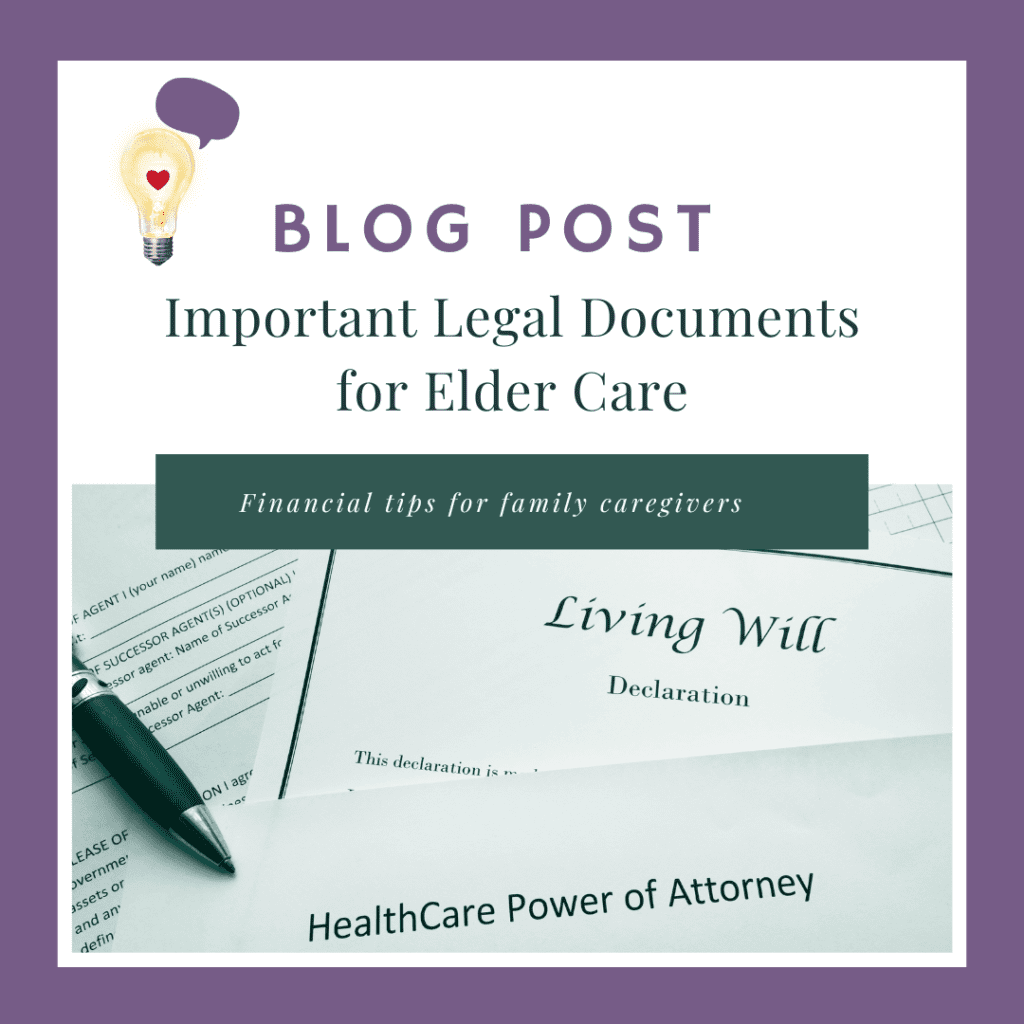Important Legal Documents for Elder Care

It’s easy to put this off. Many people don’t think about these documents until they are needed. Of course, if even one of these documents are not available when it’s needed, you’ll miss out on all the benefits that document is supposed to provide. Unfortunately, these key documents are needed when your loved ones are unable to make their own decisions, at which time it may be impossible to put them in place.
There are many stories of situations in which a needed document was not available, either because it had never been established or couldn’t be found. There are other stories of documents presented that were not accepted. These risks can be eliminated with some good planning.
What are the important legal documents?
The Will
The Living Will
The Healthcare Power of Attorney
The Financial Power of Attorney
Final Wishes and Instructions
Family Written Agreement for Care
Why are these documents important?
In short, these documents aim to accomplish the following:
- A selected person can access financial information and do necessary business on another’s behalf;
- A selected person can be actively involved in another’s care, being both authorized and informed;
- A selected person will have power and knowledge to decide on all matter as another would if they were able; and
- All post-death matters will be handled as one would direct, including all receipts by beneficiaries.
The core here is naming an agent with authority and instructions who will act for another when they can’t.
Why get them prepared and organized sooner rather than later?
It usually surprises people to learn that, except for a couple of states, California and Florida (both states popular with retirees), few or very slight penalties apply for any person or institution rejecting a presented form that appears completely valid. The reasons may be…too old, too fresh, not-on-our-company form, no confirming signature from the witness, and so on.
So, in addition to making the decisions with your loved ones and executing these documents, there is the issue of acceptability. Your best defense will lie in having your documents prepared, executed, or at the least, reviewed by an attorney practicing in this field of law.
A bit more about the Family Written Agreement for Care
This isn’t a formal legal document, but key when there is more than one member of a family who agree to support in ANY way the care of a senior family member. It’s a great time to prepare this document when you are setting up the others. This written agreement will serve the family well.
A written agreement provides opportunities to collect ideas from all family members about caregiving, including upfront care, cash contributions, respite for the upfront caregiver, fairness of care contributions, and promote a core idea that everyone has a focused task.
Additionally, with the expansion of programs making it possible for family caregivers to be compensated for their care role, having a family written agreement in place can aid in any future claims of this money, which can be spent on care needs.
A fantastic resource for drafting a written care agreement can be found on this site.
Just the formation of this agreement and reducing it to a writing is highly instructive to a family. When modifications are needed, it creates an opportunity to review the size and scope of each family member’s contribution to care, which can create an effort by some or all to do more. And, if one must withdraw for whatever reason, filling the gap will be less likely to prove so disruptive.
Learn more about legal and financial care issues by clicking the icon below.

